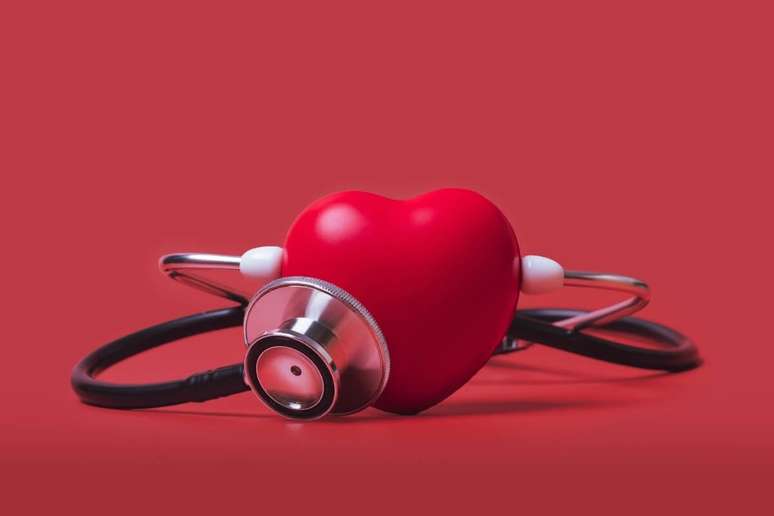Cardiologist cites healthy habits to help treat and prevent heart disease
Heart health is essential to a long and healthy life. Heart disease remains a leading cause of death worldwide, affecting millions of people each year. From initial diagnosis to advanced treatments, cardiovascular medicine has made significant progress, but prevention and awareness are still the best weapons against these diseases.
According to data from the Brazilian Society of Cardiology (SBC), approximately 14 million Brazilians suffer from cardiovascular diseases. In Brazil, cardiovascular diseases, heart and circulatory disorders are the main causes of death, representing 30% of the total. According to the Cardiometer, an indicator created by the SBC, they represent more than 1,100 deaths per day.
Understanding the risk factors, symptoms, and methods to prevent heart disease is essential to reduce the incidence of these conditions. Advances in cardiovascular medicine have allowed for more effective treatments and earlier interventions, significantly improving the quality of life of patients.
Risk factors and their implications
There are several risk factors that contribute to the development of heart disease. Among the modifiable ones we can highlight:
1. Smoking
Smoking increases blood pressure, reduces oxygen in the blood and causes damage walls of the arteriesleading to plaque buildup and increasing the risk of atherosclerosis. Quitting smoking is one of the most important steps in preventing heart disease.
“It is important to highlight that smoking has decreased significantly in Brazil in recent years, especially among young people, thanks to important campaigns, laws and government actions. We must be attentive to new variants of cigarettes that attract young people, such as electronic cigarettes, which are banned and have been ratified in the national territory by ANVISA (National Agency for Health Surveillance) and the National Congress”, explains Dr. Renato Dauar, cardiovascular surgeon.
2. Food
A diet high in processed foods, saturated fats, and sugars can lead to plaque buildup in the arteries. Eating a balanced diet rich in fruits, vegetables, whole grains, and lean proteins can help keep your heart healthy. Studies show that Mediterranean diets rich in omega-3s are especially beneficial for cardiovascular health.
3. Sedentary lifestyle
Lack of physical activity reduces the efficiency of the heart and increases the risk of cardiovascular disease. Regular aerobic exercise, such as walking, running and swimming, is highly recommended to keep the heart strong and healthy. Regular exercise helps control weight, reduce blood pressure and improve cholesterol.
4. Hypertension
High blood pressure forces the heart to work harder, increasing the risk of heart attack and stroke. Controlling blood pressure is essential for cardiovascular health. High blood pressure is known as the “silent killer” because it often has no symptoms until significant damage has occurred.
5. Cholesterol
Maintaining balanced levels of good (HDL) and bad (LDL) cholesterol is essential cardiovascular healthbecause high cholesterol can lead to plaque buildup in the arteries, increasing the risk of heart attack. Diet and, if necessary, medications can help keep cholesterol levels under control.
“In addition to good physical exercise, which can have a significant impact, the more we exercise, the more our levels of good cholesterol (HDL) increase, which plays a protective role against LDL,” comments Dr. Renato Dauar.
6. Stress
Chronic stress can lead to high blood pressure and damage to blood vessels. Relaxation techniques, meditation, and therapy can help manage stress and improve heart health. Stress management is vital, as constant stress can contribute to risky behaviors such as smoking and poor diet.
Family history and gender
In addition to the factors mentioned above, there are those that cannot be changed, such as age, family history, and gender. The risk of heart disease increases with age, and knowing your family history can help you identify and prevent it early. Men and women also differ in their risk of heart disease, which can influence prevention and treatment approaches. Men tend to develop heart disease earlier than women, but women’s risk increases after menopause.

Recognize the symptoms and act quickly
Recognizing the symptoms of a heart attack and acting quickly can save lives. Classic symptoms include chest pain, cold sweats, nausea and shortness of breath, but pain in the arms, jaw, back, dizziness and palpitations can also occur. “We draw attention, mainly, to tiredness or shortness of breath related to minimal effort,” comments Dr. Renato Dauar.
When you notice these signs, seeking immediate medical help is essential to minimize damage to your heart and increase your chances of recovery. Rapid treatment can mean the difference between life and death, and it is crucial not to ignore the symptoms. According to the SBC, only 27% of patients arrive at the hospital within two hours of symptoms appearing, which reduces the chances of recovery.
Prevention and healthy habits
Adopting healthy lifestyle habits is essential to prevent heart disease. Regular physical activity, a balanced diet, weight control, and stress management are essential to maintaining a healthy heart. Aerobic exercises, such as walking, running, and swimming, are highly recommended as they strengthen the heart and improve blood circulation. Resistance and flexibility activities, such as weight training and yoga, are also helpful.
According to experts, physical activity is one of the main recommendations for increasing longevity, reducing health risks, and maintaining physical independence as we age. In addition to these tips, you can adopt some other habits such as:
- Balanced diet: a diet rich in fruitvegetablesWhole grains and lean proteins are essential for heart health. Avoiding processed foods, saturated fats, and sugars helps prevent plaque buildup in the arteries, while diets rich in fiber and antioxidants provide additional heart protection;
- Blood pressure and cholesterol levels under control: This is another key aspect of prevention. Although medications may be necessary for some people, lifestyle changes such as a healthy diet and regular exercise are just as important;
- Stress Management: This aspect also plays a significant role in heart health. Relaxation techniques such as meditation, therapy and yoga can help manage stress which, if chronic, can have negative effects on cardiovascular health.
Iimportance of checks cardiologicalS
You checks Regular intake is essential for early diagnosis of heart problems. Tests such as electrocardiogram, echocardiogram and stress test help evaluate heart health and identify possible problems before they become serious. telemedicine It has also proven to be a valuable tool in cardiology, facilitating the monitoring and care of cardiac patients.
Remote consultations and monitoring enable patients to receive medical care conveniently and efficiently, contributing to more effective management of cardiovascular health. By adopting healthy habits and carrying out checks Regularly we can significantly reduce the incidence of heart disease and increase the rate of early diagnosis, medical reorientation of risks and people’s quality of life.
Put Dr. Renato DauaR
Cardiovascular surgeon, head of the team at the Albert Einstein Hospital, São Luiz Hospital, Lefort Hospital and member of the accredited network of doctors123.
Source: Terra
Rose James is a Gossipify movie and series reviewer known for her in-depth analysis and unique perspective on the latest releases. With a background in film studies, she provides engaging and informative reviews, and keeps readers up to date with industry trends and emerging talents.








